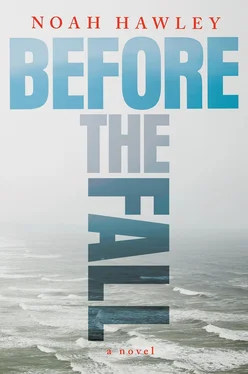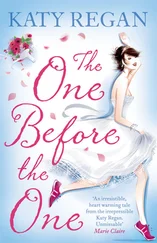“You’re calling a billion-dollar fine a wrist slap?”
“It’s walking-around money. A few months’ profits. You know that better than anyone.”
But Ben wasn’t so sure. Something about the way the agents carried themselves. They were cocky, like they knew they had the high card.
“We need to close ranks,” he’d said. “Anyone who knows anything.”
“Already done. Do you know the level of nondisclosure paperwork you have to sign to even work the front desk here? It’s Fort fucking Knox.”
“I’m not going to jail.”
“Jesus, don’t be such a pussy. Don’t you get it? There is no jail. Remember the LIBOR scandal? A conspiracy worth trillions with a t . A reporter says to the assistant attorney general, This is a bank that has broken the law before, so why not be tougher? The assistant attorney general says, I don’t know what tougher means .”
“They came to my office,” Ben had said.
“They took an elevator ride. Two guys. If they really had something it’d be hundreds of guys, and they’d walk out with a lot more than their dicks in their hands.”
And yet sitting in a corner booth with Sarah and Jenny and her fiancé’s family, Ben couldn’t help but wonder if that was really all they’d walked out with. Ben wished he had videotape of the meeting so he could watch his own face, see how much he’d given away. His poker face was usually top-notch, but in that room he’d felt off his game. Did it come through in the tension around his mouth? A crinkle in his eyes.
“Ben?” said Sarah, shaking his arm. From the look on her face, it was clear a question has been thrown his way.
“Huh?” he said. “Oh, sorry. I didn’t catch that. It’s pretty loud in here.”
He said this, even though the place was dead quiet, just a few blue-hairs whispering into their soup.
“I said, we still think real estate is the way to go, money-wise,” said Burt or Carl or whatever Shane’s father’s name was. “And then I asked your opinion.”
“Depends on the real estate,” said Ben, sliding out of the banquette. “But my advice after Hurricane Sandy is, if you’re buying in Manhattan, pick a high floor.”
He excused himself, dodging Sarah’s disapproving look, and went outside. He needed some air.
On the curb he bummed a smoke from a late commuter and stood under the restaurant’s awning smoking. A light rain fell, and he watched the taillights sheen on the black macadam.
“Got another?” asked a man in a turtleneck, stepping out behind Ben.
Kipling turned, eyed him. A moneyed man in his forties, but with a nose that had been broken at least once.
“Sorry. I bummed this one.”
The man in the turtleneck shrugged, stood looking out at the rain.
“There’s a young lady in the restaurant trying to get your attention,” he said.
Ben looked. Jenny was waving at him. Come back to the table . He looked away.
“My daughter,” he said. “It’s meet-the-new-in-laws night.”
“Congrats,” said the man.
Kipling puffed, nodded.
“With boys you worry, will they ever leave the house?” said the man. “Find their way. In my day they kicked you to the curb the minute you hit voting age. Sometimes before. Adversity. It’s the only way to make a man.”
“That what happened to your nose?” said Kipling.
The man smiled.
“You know how on your first day in prison they say find the biggest guy and kick his ass? Well, like anything else, there are consequences.”
“That’s — you’ve been to prison?” said Kipling, feeling a tourist’s thrill.
“Not here. Kiev.”
“Jesus.”
“And later in Shanghai, but that was a piece of pie, compared.”
“Are we talking bad luck or—”
The man smiled.
“Like an accident? No, man. The world’s a dangerous place. But you know that, right?”
“What?” said Kipling, feeling a slight premonitory chill.
“I said you know the world’s a dangerous place. Cause and effect. Wrong place, wrong time. You could fill a thimble with the times in human history a good man did a bad thing without thinking.”
“I didn’t, uh, I didn’t catch your name.”
“How about my Twitter handle? You want to Instagram me?”
Kipling dropped his cigarette on the sidewalk. As he did, a black car pulled up to the curb in front of the restaurant and sat, idling.
“Nice talking to you,” said Ben.
“Hold on. We’re almost through, but not quite.”
Kipling tried to get through the door, but the man was in the way. Not blocking him exactly, just there.
“My wife—” said Ben.
“She’s fine,” said the man. “Probably right now thinking about dessert. Maybe have the meringue. So take a breath — or take a ride in the car. Your choice.”
Kipling’s heart was going a mile a minute. He’d forgotten this feeling existed. What was it? Mortality?
“Look,” said Ben, “I don’t know what you think—”
“You had a visit today. The party police. Señor Buzz Kill. I’m being obtuse deliberately. Except to say — maybe they spooked you.”
“Is this, like, a threat scenario or—”
“Don’t get excited. You’re not in trouble. With them maybe. But not with us. Not yet.”
Kipling could only imagine who us meant. The realities of the situation were clear. Though he had always dealt with factotums and middlemen (white-collar criminals at best), Kipling had made his bones at the firm by exploiting previously underutilized revenue streams. Revenue streams that — as his visit from the Treasury agents only reinforced — were of an extra-legal nature. Which is to say, in plain English, that he laundered money for countries that sponsor terrorism, like Iran and Yemen, and countries that murder their own citizens, like Sudan and Serbia. And he did it from a corner office in a downtown high-rise. Because when you deal with billions of dollars, you did it in plain sight, creating shell companies and disguising wire-transfer origin points six ways from Sunday, until the money was so clean it might as well be new.
“There’s no problem,” Ben told the man in the turtleneck. “Just a couple of young agents getting overeager. But upstairs from them we’ve got things locked down. At the level where it matters.”
“No,” said the man, “you’ve got a few problems there too. Changes in executive policy. Some new marching orders. I’m not saying panic , but—”
“Look,” said Ben. “We’re good at this. The best. That’s why your employers—”
A hard glare.
“We don’t talk about them.”
Ben felt something electric run down his back and pucker his asshole.
“You can trust us, I’m saying,” he managed. “ Me . That was always my pledge. No one’s going to jail over — because of this. That’s what Barney Culpepper says.”
The guy looked at Ben as if to say, Maybe I believe you, maybe I don’t . Or maybe he was trying to say, It’s not up to you .
“Protect the money,” he said. “That’s what matters. And don’t forget who owns it. Because, okay, maybe you cleaned it so good it doesn’t connect to us, but that doesn’t make it yours.”
It took a second for Ben to translate the implication. They thought he was a thief.
“No. Of course.”
“You look worried. Don’t look like that. It’s okay. You need a hug? All I’m saying is, don’t forget the most important things. And that’s the following — your ass is of secondary importance. Only the money matters. If you have to go to jail, go to jail. And if you feel the urge to hang yourself, well, maybe that’s not a bad idea either.”
Читать дальше












